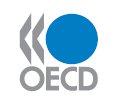 Ahir vaig conèixer el darrer informe de l’OCDE sobre el sistema universitari espanyol, gràcies a un article d’El País. Llegint l’informe una mica pel cim, he vist que la visita del comité avaluador es va fer el maig de
Ahir vaig conèixer el darrer informe de l’OCDE sobre el sistema universitari espanyol, gràcies a un article d’El País. Llegint l’informe una mica pel cim, he vist que la visita del comité avaluador es va fer el maig de 2008 2007, o sigui, fa pràcticament dos anys.
L’informe ve a complementar, i fins i tot repetir, d’altres informes sobre els sistema universitari espanyol, i no em sembkla que aporti cap element gaire novedós que introdueixi elements per poder progressar. És benintencionat, i fins i tot curós amb l’autonomia universitària i amb l’Estat de les Autonomies.
Ja m’agradaria poder destacar alguna frase que aportés llum al nostre sistema, suposant que calgui aportar-hi llum. Perquè parlar de la governança no és pas difícil. El que és difícil és fer-ho realment.
Destaco el final de la secció d’itnernacionalització:
One of main challenges facing Spanish universities is to compete with
other European universities and to improve their global ranking. While there
are 34 European universities among the top ranked one hundred universities,
according to the Academic Ranking of World Universities of the Institute of
Higher Education, Shanghai Jiao Tong University, none are Spanish. And
the same source reports only one Spanish university among the 80 European
universities that make up the first 200 ranked universities. Regardless of the
ranking’s limitations, one should not underestimate their influence, for
example, on students from the rest of the world who decide to study abroad
often with nationally funded scholarships that support doctoral courses at
leading universities.
L’informe de l’OCDE sembla apuntar que el rànking de Shanghai té limitacions, i senyala una cosa que no havia remarcat prou: no importa si el rànking està mal fet, sinó la validesa que li dóna la gent. Si els xinesos en fan cas, i si cap universitat catalana hi és, no tindrem estudiants xinesos en mobilitat. No hi fa res que la forma de fer-lo sigui inadequada.
Sobre noves oportunitats i sobre el canvi, també hi he trobat interessant
An imperative for successful policy implementation is the development
of steering instruments to achieve accountability and link institutional
performance to national/regional purposes while also permitting a wide
scope for institutional autonomy. Typical instruments to meet these two
goals include performance contracts, performance-related funding or
targeted funding. Especially important is the way money streams – in
particular those dealing with research funding, funding of a strategic nature
and the funding of programmes – may be coordinated to give optimal
outcomes in the area of quality, efficiency and system responsiveness (see
subsequent Sections). One concrete objective should be to reduce the
inefficiencies identified in the system such as the long times to completion
and the number of low-enrolment programmes.
O sigui, contractes-programa, finançament per objectius si finançament orientat, tot plegat coordinat i amb eficiència.
 Pel que fa al lligam secundària-universitat, no en parla gaire. Però apunta que la formació professional hauria de estar molt més lligada a la universitat:
Pel que fa al lligam secundària-universitat, no en parla gaire. Però apunta que la formació professional hauria de estar molt més lligada a la universitat:
In this respect, the current emphasis on the development of the higher
vocational sector is to be supported. A key step, as proposed earlier, is to
better integrate higher vocational education in a coherent tertiary education
system and no longer view it as an extension of secondary education.
Improving the higher vocational system is of major importance to ensure the
responsiveness of the educational system to labour market needs. The
priority should go to raise the profile of vocational education, improve the
transition between secondary and tertiary education, expand choice in
practice-oriented programmes, and better respond to the needs of industry
and businesses. The success of these reforms will also greatly depend on
policies to prevent the potential academic drift of some tertiary vocationallyoriented
institutions.
L’informe no parla del paper de la universitat a la web 2.0, tampoc dels sistemes d’informació de les universitats, del paper com a dipositàries del coneixement, del paper de motor de la societat, de la seva reputació. I parla poc dels Parcs Científics.
En fi, es tracta d’un YAUR (Yet Another University Report). Es deixa llegir, però ja té dos anys de vida, crec que no reflexa prou la universitat actual, i les coses van molt ràpides. Bé, primer caldria tenir clar què hi entenem per Universitat…
I sempre cal agrair la feina de gent que es mira un tema i que el valora, avalua i en fa un informe. Quatre ulls hi veuen més que no pas dos.
Dius bé, dos anys, però tens una errada en el text, 2007.
Jo avui no estic d’acord en què és un informe més. No conec altre d’aquestes característiques tot i que potser se m’hagi passat. Cert que manquen algunes coses, però el trobo encertadíssim. És un retrat fidel però suavitzat de la realitat i té la virtut que és absolutament extern.
Més aviat em referia a informes externs sobre la qualitat de les universitats, o a documents de la pròpia comunitat universitària.
Ja he dit que quatre ulls hi veuen més que dos, i cal agrair que algú es mulli, encara que sigui amb banyador hidrofòbic.
Gràcies per detectar l’errada!